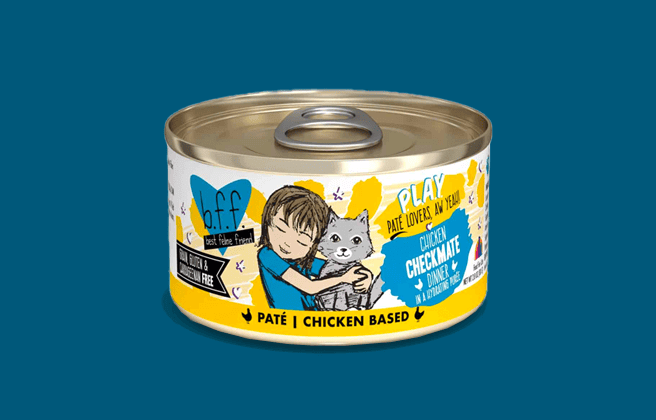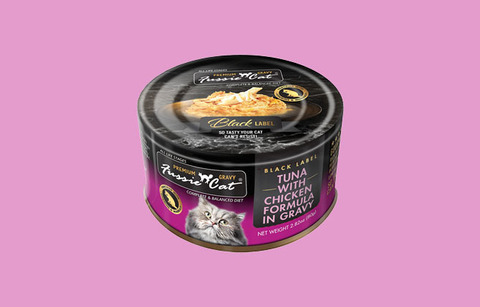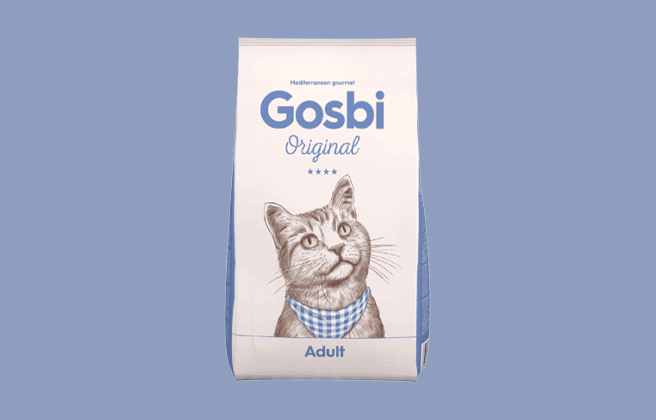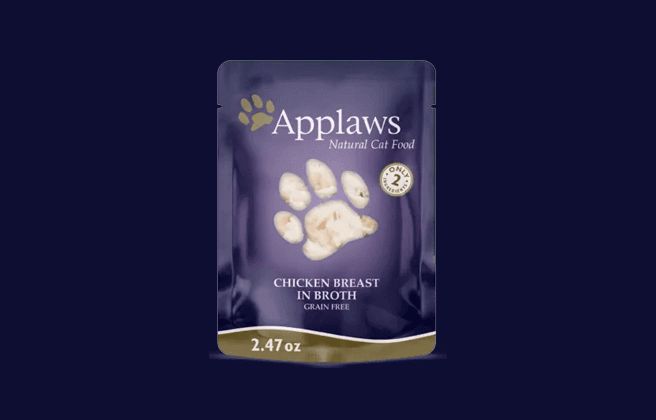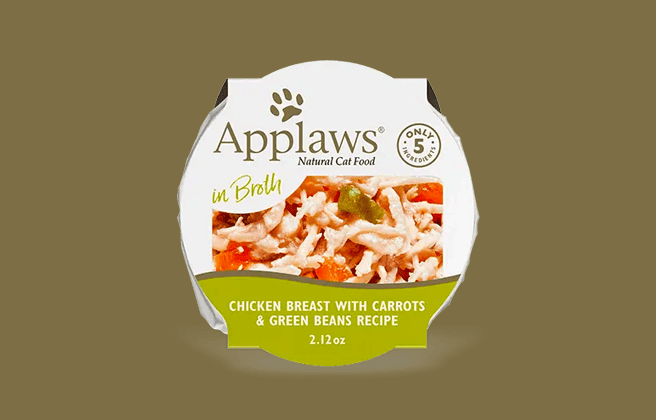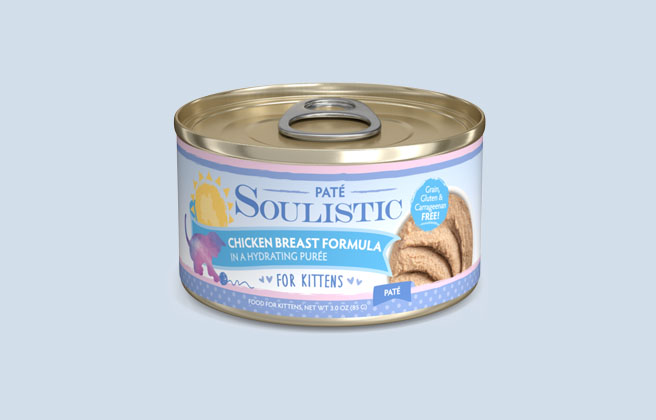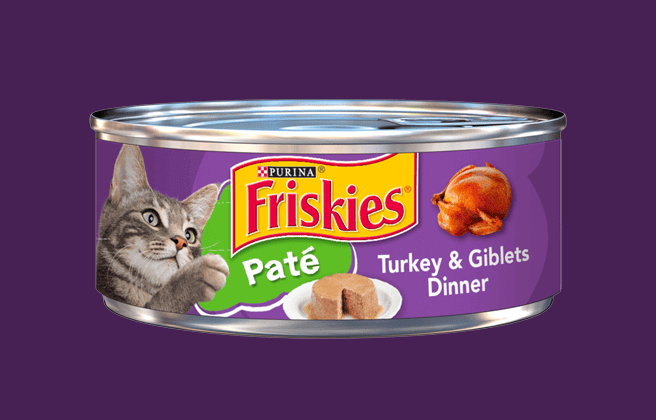
Our Verdict
Purina Friskies Paté wet product range is made of twelve recipes which all receive the Cat Food Advisor rating: 1.5 stars.
The majority of this product range contains unnamed animal or fish in its ingredients, as well as meat by-products and artificial flavors. It is high in protein but also fat.
Most recipes are given an AAFCO nutrient profile for adult maintenance, but there are also some products suitable for kittens.
Pros
- Affordable
- High protein content
Cons
- High in fat
- Artificial flavors
The table below shows each recipe in the range including our rating and the AAFCO nutrient profile: Growth (kitten), Maintenance (adult), All Life Stages, Supplemental or Unspecified.
| Product line | Rating | AAFCO |
|---|---|---|
| Purina Friskies Pate Mixed Grill | 1.5 | M |
| Purina Friskies Pate Poultry Platter | 1.5 | G & M |
| Purina Friskies Pate Supreme Supper | 1.5 | G & M |
| Purina Friskies Pate Seafood Entree | 1.5 | G & M |
| Purina Friskies Pate Mariner's Catch | 1.5 | G & M |
| Purina Friskies Pate Salmon Dinner | 1.5 | G & M |
| Purina Friskies Pate Country Style Dinner | 1.5 | G & M |
| Purina Friskies Pate Sea Captain's Choice | 1.5 | G & M |
| Purina Friskies Pate Liver & Chicken Dinner | 1.5 | G & M |
| Purina Friskies Pate Chicken & Tuna Dinner | 1.5 | G & M |
| Purina Friskies Pate Turkey & Giblets Dinner | 1.5 | G & M |
| Purina Friskies Pate Ocean Whitefish & Tuna Dinner | 1.5 | G & M |
Save up to 35%
with Autoship
See discount in cart
Recipe and Label Analysis
Friskies Paté Turkey & Giblets – made by Purina – was selected to represent the other products in the line for a detailed recipe and nutrient analysis.
Label and nutrient data below are calculated using dry matter basis.
Ingredients Analysis
The first ingredient is meat by-products, an item made from slaughterhouse waste. This is what’s left of slaughtered animals after all the prime striated muscle cuts have been removed.
With the exception of hair, horns, teeth and hooves, this item can include almost any other part of the animal.1
What’s worse, this particular item is not from a named source. So, the meat itself can come from any combination of cattle, pigs, sheep or goats — which can make identifying specific food allergies impossible.
Although most meat by-products can be nutritious, we do not consider such vaguely described (generic) ingredients to be as high in quality as those derived from a named animal source.
The second item is water, which adds nothing but moisture to this food. Water is a routine finding in most wet cat foods.
The third ingredient is poultry by-products or slaughterhouse waste. This is what’s left of slaughtered poultry after all the prime cuts have been removed.
In addition to organs, this item can also include feet, beaks, undeveloped eggs and almost anything other than prime skeletal muscle.
The quality of this ingredient can vary, depending on the caliber of the raw materials obtained by the manufacturer.
Although this item contains all the amino acids a cat needs, we consider poultry by-products slightly lower in quality than a single species item (like chicken by-products).
The fourth ingredient is turkey. Turkey is considered “the clean combination of flesh and skin… derived from the parts or whole carcasses of turkey”.2
Turkey is naturally rich in the 11 essential amino acids required by a cat to sustain life.
The fifth ingredient is poultry giblets, an edible by-product of poultry slaughter. They include the heart, liver and gizzard of a bird’s carcass.
Though the thought of eating an animal’s internal organs may not be appealing to most humans, these items can all be considered a natural part of a feline diet.
Giblets are an acceptable and healthy meat ingredient.
The sixth ingredient is fish. This item is typically sourced from clean, undecomposed whole fish and fish cuttings of commercial fish operations.3
Although it is a quality item, raw fish contains up to 73% water. After cooking, most of that moisture is lost, reducing the meat content to just a fraction of its original weight.
After processing, this item would probably account for a smaller part of the total content of the finished product.
The seventh ingredient is rice. But is this whole grain rice, brown rice or white rice? Since the word “rice” doesn’t tell us much, it’s impossible to judge the quality of this item.
From here the list goes on to include a number of other items. But to be realistic, ingredients located this far down the list (other than nutritional supplements) are not likely to affect the overall rating of the product.
However, it does contain carrageenan which is a gelatin-like thickening agent extracted from seaweed. Although carrageenan has been used as a food additive for hundreds of years, there appears to be some recent controversy regarding its long-term biological safety. is a gelatin-like thickening agent extracted from seaweed.
The article, The Carrageenan Controversy, published in Scientific American, does a good job of addressing this topic.
This recipe also contains menadione, a controversial form of vitamin K linked to liver toxicity, allergies and the abnormal break-down of red blood cells.
Since vitamin K isn’t required by AAFCO in its nutrient profiles, we question the use of this item in any feline recipe.
This recipe receives a 1.5-star rating.
Save up to 35%
with Autoship
See discount in cart
Nutrient Analysis
Based on its ingredients alone, Friskies Paté looks like a below-average wet product.
The dashboard displays a dry matter protein reading of 45.5%, a fat level of 23% and an estimated carbohydrate level of 24%.
As a group, the brand features an average protein content of 44% and a mean fat level of 21%. Together these figures suggest a carbohydrate content of 24% for the overall product line, alongside a fat-to-protein ratio of 36%.
This means the Friskies Paté product line contains above-average protein, carbs and fat content when compared to typical wet cat food.
Final Word
Friskies Paté cat food is a cheaper cat food made from low-quality ingredients. It contains unnamed meat and fish by-products high up in its ingredient list as well as artificial flavors.
Has Purina Friskies cat food been recalled in the past?
Yes, Purina has had a number of cat food recalls over the years.
The last one was in July 2021 when cans of Purina Pro Plan Complete Essentials Tuna Entree in Sauce Wet Cat Food were recalled as they may have contained plastic.
In March 2019, Purina issued a recall of one of its Muse cat foods.
In 2012, a single lot of Purina Veterinary Diets OM Overweight Management Feline Formula was recalled due to low levels of thiamine. Production Code #11721159.
In June 2011, Friskies issued a small recall due to the potential risk of salmonella contamination. This recall only affected a small range of Friskies products, – the Friskies Grillers Blend dry cat food recipe in 3.15lb and 16lb bags with best-by dates of August 2012.
In the same year, some other Purina dry cat foods were recalled due to suspected salmonella contamination. The products affected were: Purina ONE Vibrant Maturity 7+ dry cat food, 3.5 lb. and 7 lb. bags, with a “Best by” date of May 2012 and Production Code #03341084 or #03351084 and Purina Cat Chow Naturals, 6.3 lb., Production Code #10331083 13, with “Best by” date of August 2012.
You can view a complete list of all cat food recalls since 2021 here.
To stay on top of any cat food product recalls, sign up for our free email alerts, here.
About
Nestlé Purina PetCare is an American subsidiary of the Swiss corporation Nestlé, based in St. Louis, Missouri. It produces and markets pet food, treats, cat and dog litter.
The cat food brands owned by Purina are: Beyond, Breeze, DenaLife, Fancy Feast, Friskies, Kit & Kaboodle, Petivity, Purina Cat Chow, Purina ONE, Purina Pro Plan, Purina Pro Plan Veterinary Diets, Tidy Cats and Whisker Lickin’s.
Sources
Best cat foods
We uphold the highest editorial standards when creating the authoritative content pet parents rely on and trust.
Every piece of clinical content on the Cat Food Advisor is reviewed by our certified Veterinary Advisory Board, which consists of licensed veterinarians and medically certified specialists.
Our reviews are completely independent; we are not paid by any pet food company to promote their products favorably. We do not accept money, gifts, samples or other incentives in exchange for special consideration. For more information see our Disclaimer & Disclosure page.







